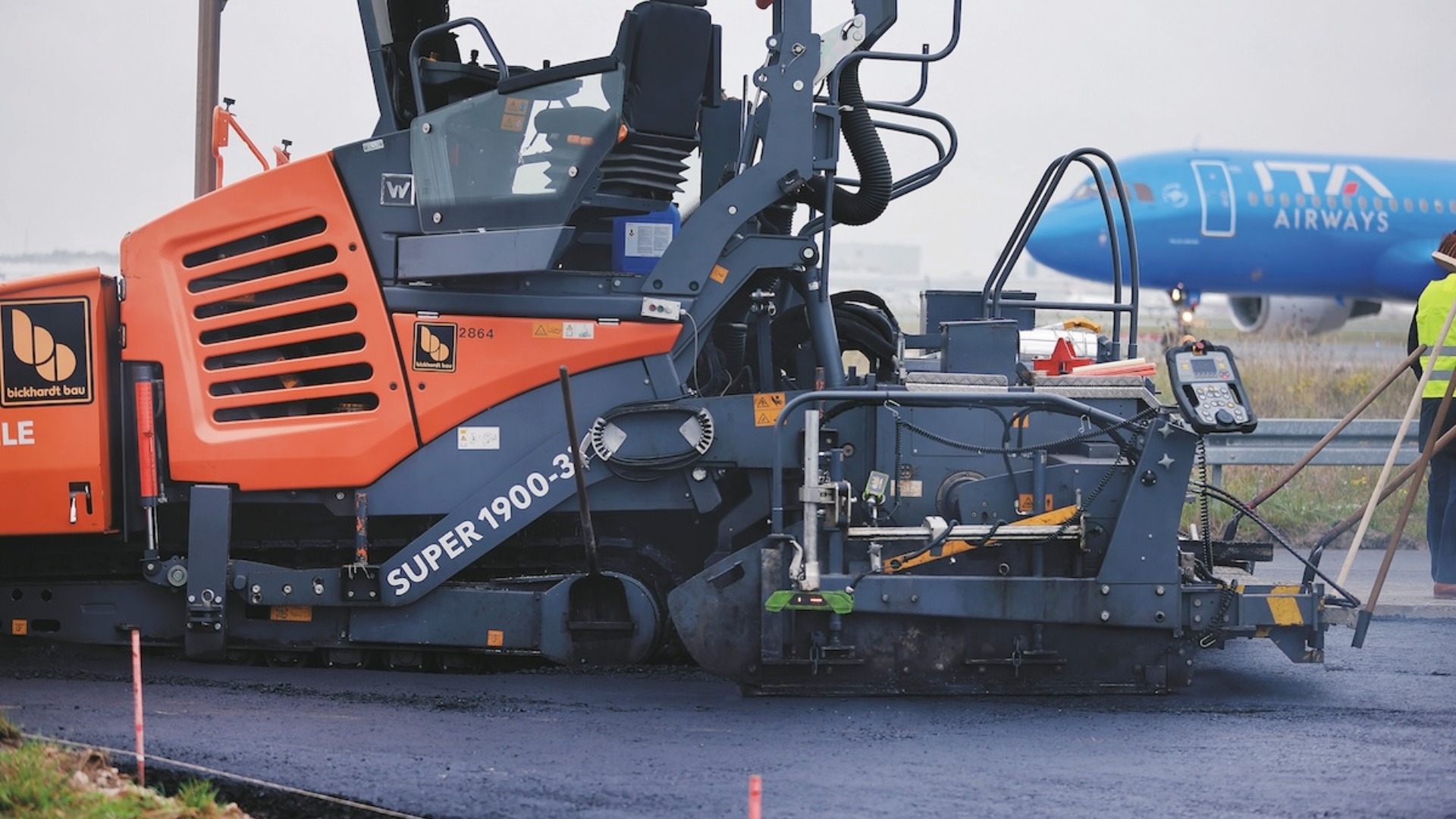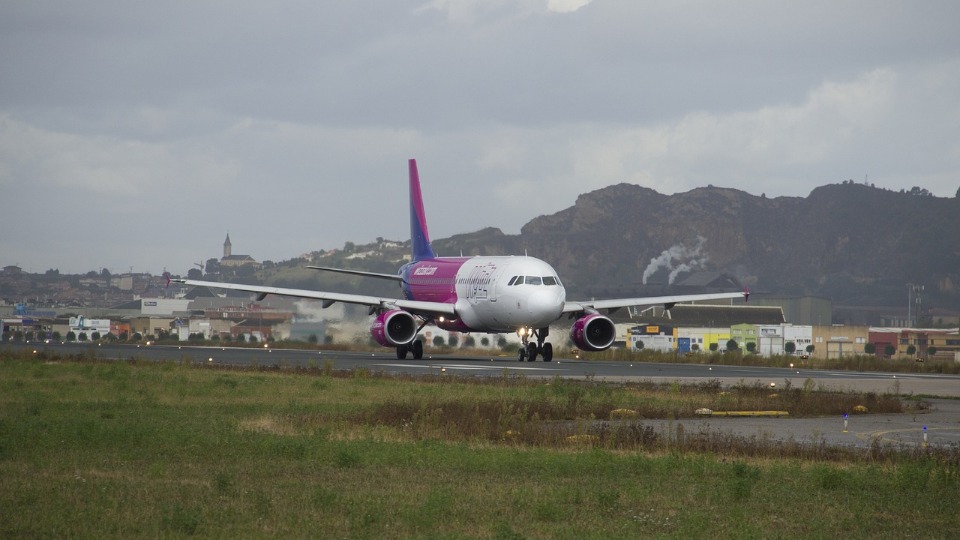
Fraport Trials Innovative Cashew-Based Sustainable Asphalt at Frankfurt Airport

Fraport AG is pioneering the use of innovative construction materials by testing sustainable asphalt concrete at Frankfurt Airport. In collaboration with startup B2Square – Bitumen Beyond Oil, the airport operator is constructing and evaluating a 200-meter-long section of road on the airport apron. This marks the first time organic cashew-based bitumen has been utilized in an airport setting globally.
Sustainable Low-Temperature Asphalt
Traditionally, bitumen, a crucial component in road construction, is derived from crude oil distillation. However, B2Square’s approach involves blending hydrocarbon resin extracted from nature with an organic material sourced from cashew shells. The resulting product is a sustainable asphalt that offers an eco-friendlier alternative to conventional asphalt concrete.
Reduced Carbon Footprint
The use of cashew-derived materials presents a more durable and climate-friendly solution. Cashew trees, like all plants, absorb carbon dioxide from the atmosphere. The carbon stored in the cashew shells undergoes a process that neutralizes it and permanently binds it within the road pavement. Additionally, the low-temperature application method enhances the environmental benefits by reducing energy consumption during installation.
Andreas Eibensteiner from Fraport AG’s Environmental Management Department commented on the significance of this initiative: “We view this innovative bioasphalt as a promising option for reducing Frankfurt Airport’s carbon footprint. Our focus is on minimizing CO2 emissions in areas directly impacted by our operations, while also addressing scope 3 emissions related to construction activities. Exploring inventive methods like this is essential in combating climate change.”
Compliance with Upcoming Regulations
By implementing bioasphalt, Fraport is proactively aligning with new regulations aimed at limiting workplace exposure to steam and aerosols, effective from 2025.
Monitoring the Test Stretch
The sustainable asphalt is being mixed with crushed rock at the Kelsterbach asphalt plant, near the airport, before being transported to the construction site. A test stretch on the southern part of the airport’s apron features one side paved with sustainable bioasphalt and the other with traditional asphalt. This comparative approach will provide valuable data on performance.
The independent laboratory HNL Ingenieur- und Prüfgesellschaft mbH in Aschaffenburg is overseeing the project. Axel Konrad, a project manager in Fraport AG’s Central Infrastructure Management, shared, “We aim to gather crucial insights into the durability of this sustainable asphalt over the next two years, with biannual checks focusing on compaction and void content.”
Fraport's Climate Protection Goals
Fraport AG is committed to achieving zero carbon dioxide emissions by 2045 at Frankfurt Airport and its other fully consolidated facilities. The company plans to reduce emissions to 50,000 tonnes annually by 2030. These efforts are part of a broader decarbonization plan established in 2023, emphasizing Fraport’s dedication to climate protection.








